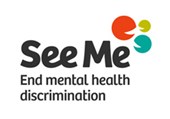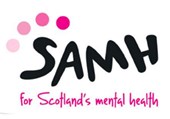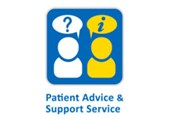Mental Health
Mental health care and treatment engages a range of human rights including the rights to life, liberty, freedom from inhuman and degrading treatment, and respect for private and family life.
People with mental health issues are also often disadvantaged in accessing other rights like the right to an adequate standard of living, to participate in communities and to employment and work opportunities.
The Commission is working alongside others to recognise and address specific issues such as mental health stigma, access to mental health care, quality of treatment.
Scottish Mental Health Law Review
The Convention on the Rights of Persons with Disabilities requires fundamental shifts in the role of mental health and incapacity legislation, to ensure people are supported to make decisions about their own lives. The Commission advocated for a number of years for the reform of mental health and capacity law.
We worked alongside the Scottish Mental Health Law Review or the Scott Review which published its recommendations in September 2022, recommending a move to supportive, enabling legislation, which delivers a broad range of human rights. The Commission wants to see the recommendations delivered as early as possible and will continue to provide detailed input as the process develops.
Independent Review of Learning Disability and Autism
The Rome Review looked at the experiences of people with learning disability and autistic people under mental health legislation. It recommended changes to the law to uphold the human rights of those individuals and improve their experiences.
The Commission supported the Rome Review to develop and use a human rights based approach to their work. The Rome Review reported in December 2019 and its recommendations were considered further in the Scott Review.
Forensic Mental Health Review
The Review looked at the delivery of forensic mental health services in hospitals, prisons and the community, where there are significant gaps in provision. The Commission supported the Barron Review to take a human rights based approach to its work.
There remains a need for action on the recommendations of the Review and to improve the delivery of human rights for those experiencing mental health issues in prison and forensic settings.
Deaths in Mental Health detention
There is no mandatory investigation of deaths in mental health settings. A number of agencies can be involved in investigating the deaths of people being treated for ‘mental disorder’. The current arrangements do not comply with the requirements set out in Article 2 of the ECHR, in that investigations should be independent of those implicated in the death, involve next of kin, and be subject to public scrutiny.
The Commission has advocated for reform of the system for many years and provided advice to the Ministerial Review. Following a Ministerial review the Mental Welfare Commission has put forward proposals for a new system. The Commission’s comments on the proposals can be read here.
Help and Advice
Mental Welfare Commission for Scotland
The commission protects and promotes the human rights of people with mental health problems, learning disabilities, dementia and related conditions
See Me Scotland
Scotland's programme to tackle mental health stigma and discrimination.
Scottish Association for Mental Health (SAMH)
The Scottish Association for Mental Health offers advice on mental health issues.
Patient Advice and Support Service (PASS)
The Patient Advice and Support Service (PASS) at Citizens Advice Bureau is an independent service which provides information, advice and support to patients and their carers.





